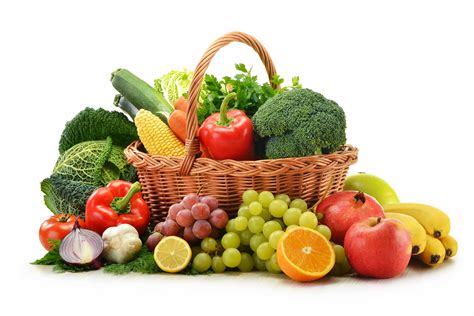
Super Vegetables and Fruits
Published Date: 6/17/2023 5:53:29 AM
Some nutritional supplements combine the benefits of many super vegetables and fruits. Super vegetables include spinach, carrots, leafy greens, avocado, olive, legumes, nuts, cruciferous vegetables (broccoli, Brussel sprouts, kale, cabbage) and super fruits include berries, orange, banana, grapes, apples. These reduce the risk of diseases like blood pressure, heart attack, cancers, and enhance energy and activity.
What are its benefits:
- Spinach is rich in antioxidants that may reduce the risk of chronic disease, as it may reduce risk factors such as high blood pressure.
- Carrots are especially high in beta-carotene, which can turn into vitamin A in the body. Their high antioxidant content may help reduce the risk of lung and prostate cancer.
- Broccoli is a cruciferous vegetable that contains sulforaphane, a compound that may prevent cancer growth. Eating broccoli may also help reduce the risk of chronic disease by protecting against oxidative stress.
- Garlic may help lower blood triglyceride levels. Some studies have also found that it could decrease blood sugar levels. It contains bioactive organosulfur compounds that have powerful biological effects, including improved immune function.
- Brussels sprouts contain an antioxidant called kaempferol, which may protect against oxidative damage to cells and prevent chronic disease.
- Kale is high in vitamins A, C, and K as well as antioxidants. Studies show that drinking kale juice could reduce blood pressure and LDL cholesterol while increasing HDL cholesterol.
- Green peas contain a good amount of fiber, which helps support digestive health. They also contain plant compounds called saponins, which may have anti-cancer effects.
- Ginger could reduce nausea and alleviate inflammation. Ginger supplements may also help decrease blood sugar.
- Asparagus is especially high in folate, which may help prevent neural tube birth defects. Test-tube studies have also found that asparagus can support liver function and reduce the risk of toxicity.
- Red cabbage contains a good amount of fiber, vitamin C, and anthocyanins. Certain studies show that it may decrease blood cholesterol levels, reduce inflammation, and lower the risk of heart and liver damage.
- Sweet potatoes are high in beta-carotene, which may decrease the risk of some types of cancer. White sweet potatoes could also help reduce blood cholesterol and blood sugar levels.
- Apples are high in fiber, vitamin C, and numerous antioxidants. They are very filling and make the perfect snack if you find yourself hungry between meals.
- Avocados are different than most fruits because they are loaded with healthy fats instead of carbs. Not only are they creamy and tasty but also high in fiber, potassium, and vitamin C.
- Bananas are among the world’s best sources of potassium. They’re also high in vitamin B6 and fiber, as well as convenient and portable.
- Blueberries are not only delicious but also among the most powerful sources of antioxidants in the world.
- Oranges are well known for their vitamin C content. What’s more, they’re high in fiber and antioxidants.
- Strawberries are highly nutritious and low in both carbs and calories.
- Green beans, also called string beans, are unripe varieties of the common bean. They are very popular in Western countries.
- Kidney beans are loaded with fiber and various vitamins and minerals. Make sure to cook them properly, as they’re toxic when raw.
- Peanuts are incredibly tasty and high in nutrients and antioxidants. Several studies suggest that peanuts can help you lose weight.